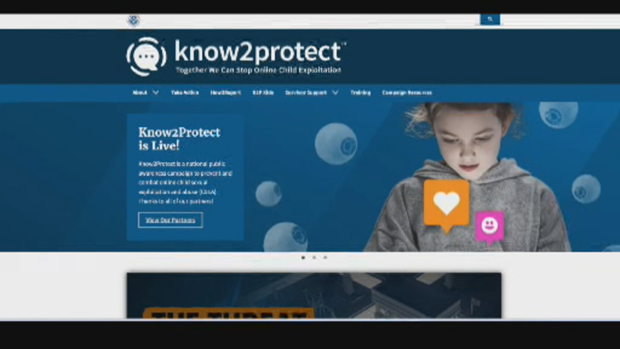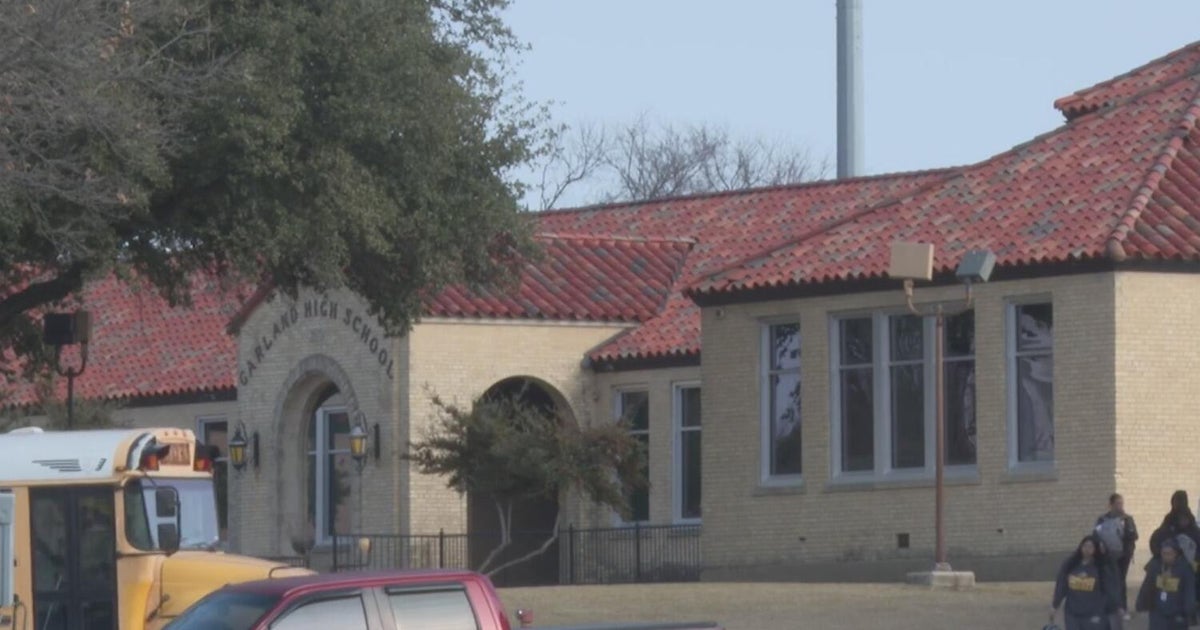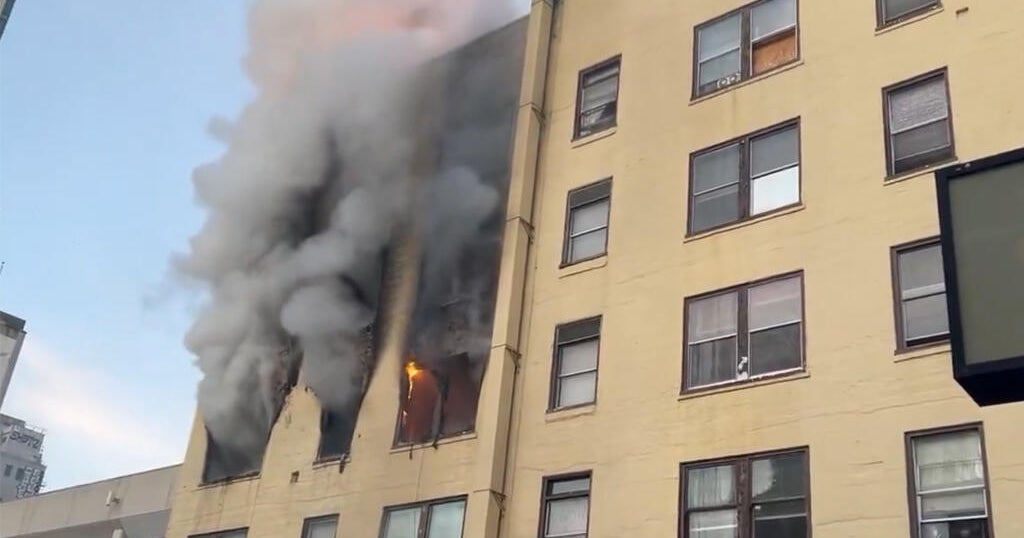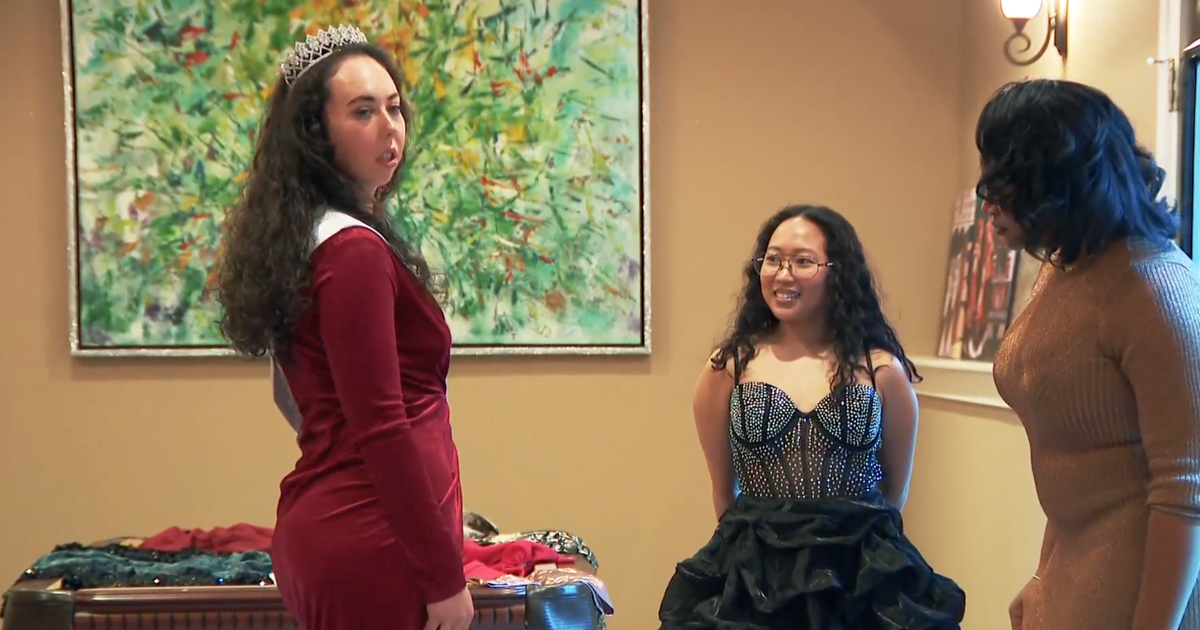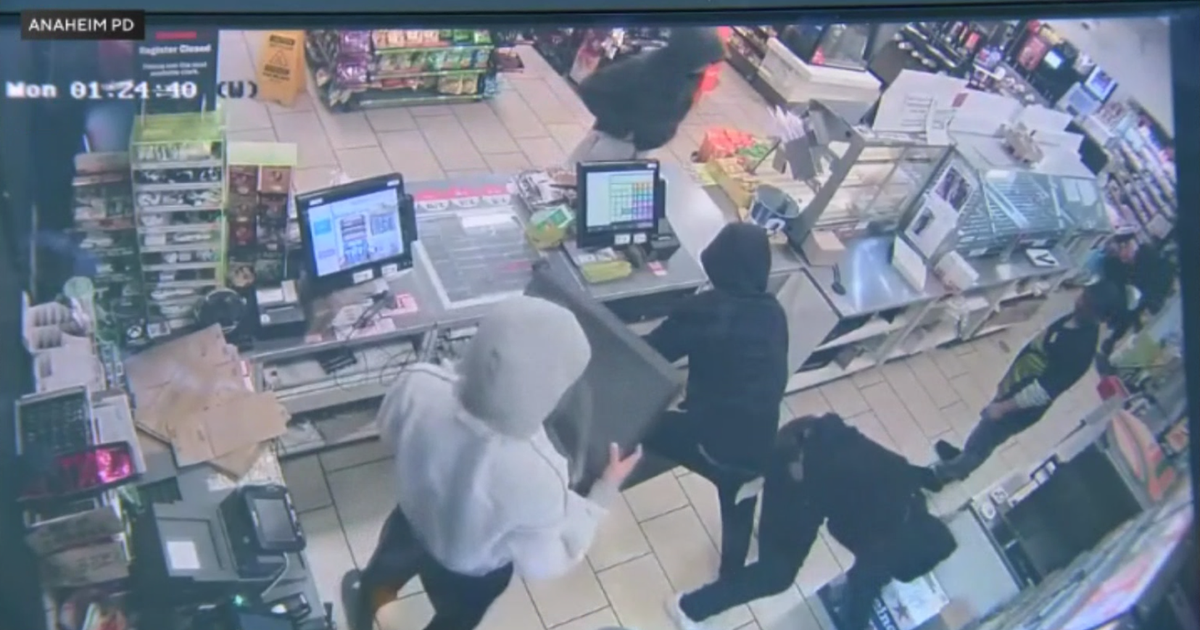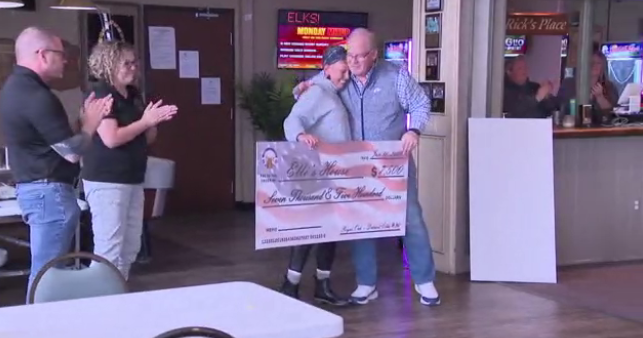Trafficked in Texas: I-Team goes behind the scenes with the Department of Homeland Security
NORTH TEXAS – The Department of Homeland Security reported an alarming 36.2 million suspected cases of child exploitation last year, more than doubling the 16.9 million cases reported in 2019.
DHS has termed this an "unimaginable problem" that demands immediate action – particularly in North Texas.
The case of Phillip Jay Curlett
During a recent visit to DHS, the CBS News Texas I-Team gained rare access to disturbing evidence from recent sex trafficking cases in North Texas including the case involving Phillip Jay Curlett, a 34-year-old trafficker arrested last July at an Extended Stay hotel near Six Flags in Arlington.
"He was a trafficker that operated in North Texas as well as other surrounding states for more than a decade," said Special Agent John Perez. Perez heads the North Texas Human Trafficking Unit, a division of Homeland Security.
Court documents state Curlett operated across North Texas and surrounding states for more than a decade, forcing multiple victims into a human trafficking organization.
They state in detail the brutality of Curlett's actions, which agents say included violent beatings and compelling victims, including minors, to generate commercial sex proceeds for him. Agent Perez says Curlett showed no discrimination based on age or gender, making his crimes even more heinous.
"He was violent, He would traffic women and he would traffic children. He did not discriminate. Age did not matter to him."
Agent Perez told the I-Team, "Some of these hotels that we see kinda fit the bill…but business people, they buy sex. Where do they stay? At high-end hotels in downtown Dallas, up at The Star, Southlake, Frisco, Collin County, Denton County, Tarrant and Dallas. The demand is there."
Perez said traffickers target all neighborhoods and all locations.
According to court documents, Curlett manipulated his victims through false promises and threats. One victim recounted meeting Curlett on a dating app, believing she was entering a romantic relationship; however, the agents say Curlett quickly coerced her into trafficking using violence and drugs to maintain control.
Special Agent Perez described how traffickers, such as Curlett, exploit the vulnerabilities of their victims, often targeting those with unstable living conditions or previous trauma. The psychological manipulation and physical abuse create a cycle of dependency and fear, making it incredibly challenging for victims to escape.
According to court documents, Curlett is now appealing his case. The I-Team repeatedly reached out to his attorney for a comment; however, his attorney has not responded.
The case is part of a larger trend of sex trafficking that intersects with various aspects of society, including the hospitality industry and digital platforms. The involvement of both low and high-end hotels and the use of online advertisements for commercial sex illustrate the complex and multi-layered nature of these operations.
"Victims, not prostitutes"
DHS has shifted its approach to handling such cases, recognizing victims as individuals in need of compassion rather than criminals. This change is reflected in the establishment of "soft interview rooms" designed to provide a supportive environment for victims. These rooms, equipped with comfortable furnishings and a calming ambiance, mark a significant departure from the cold, steel interrogation rooms of the past.
Evidence from cases has played a crucial role in changing perceptions. Artworks seized from a Plano trafficker depicted women as objects trapped for money, underscoring the dehumanizing nature of sex trafficking.
"Look closely and you'll see the repetition of some very common symbols—dollar signs, money, watches, jewelry. Women are objects dangling from webs, entangled. Caught, controlled, and trapped for money," Perez highlighted.
The visual elements have helped law enforcement and the public understand the severe exploitation involved.
Texas victims and traffickers
In cases the I-Team reviewed, the average time a victim spent in exploitation was 341 days – nearly one year.
Since 2018, the North Texas Human Trafficking Task Force has made 349 felony arrests, with sentences ranging from 12 life terms to 360 months to parole.
"Hopefully when traffickers see these 30-year prison sentences, 12 life sentences, it will deter them and make them think twice," said Perez.
Despite these efforts, Perez says the problem remains pervasive, with traffickers earning up to $200,000 a week and continuously exploiting victims online.
Nationwide, defendants in sex trafficking cases range in age from 19 to 76, highlighting the diverse profiles of those involved in these crimes.
"To give you an idea of how big the problem is at any given time, in a 50-mile radius, that pretty much covers most of the DFW area, there'll be over 10,000 sex ads posted in a day," said Perez.
"And if we expand that out and cover a month and truly cover all four of the major counties, we're talking upwards of a million advertisements per month just here."
Notably, the I-Team learned 31% of the victims are minors, often lured online and then sold online. These figures illustrate the extensive reach of sex trafficking networks and the urgent need for comprehensive intervention strategies.
"Sex trafficking in North Texas is a major problem. Sex trafficking worldwide is only second in illicit revenue behind narcotics smuggling. The biggest difference in human trafficking and drug trafficking is I can only sell a kilo of narcotics so many times before it's either seized or consumed…I can sell a human being over and over and over and over and over."
Know2Protect campaign
In response, DHS has introduced the Know2Protect, a new campaign. The campaign underscores the critical need for awareness and proactive measures. As the I-Team's investigation reveals, the harrowing details and evidence from these cases emphasize the urgency for ongoing vigilance and support for victims. The Know2Protect is a step towards addressing these issues, but continuous effort and community involvement are essential to make a significant impact.
The campaign aims to address these challenges through a multi-faceted approach. By partnering with technology companies and sports leagues, the campaign seeks to leverage broad platforms to disseminate information on crime prevention and reporting. The collaboration with Meta, Google and Snap is particularly crucial, given the role of social media and online platforms in the grooming and exploitation of victims.
The campaign also focuses on providing resources for victims and survivors, ensuring they have access to the support needed to rebuild their lives. This includes legal assistance, counseling services, and educational resources to help them transition out of exploitative situations.
For more information on the Know2Project and resources for crime prevention and reporting, visit https://www.dhs.gov/know2project.
More resources
As the I-Team's investigations reveal, the harrowing details and evidence from these cases emphasizes the urgency for ongoing vigilance and support for victims. The disturbing nature of the evidence, including images and documents detailing the abuse and exploitation, highlights the severe impact of these crimes on victims' lives.
For those who want to volunteer, donate and/or learn more about sex trafficking in the U.S, visit one of the following sites:


